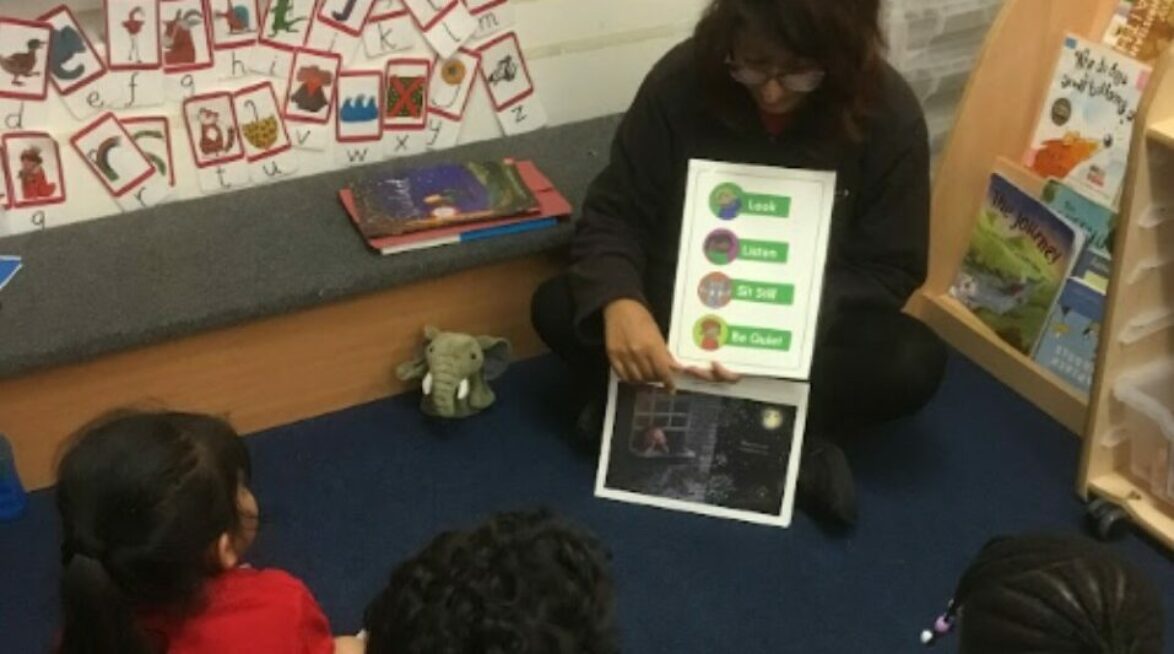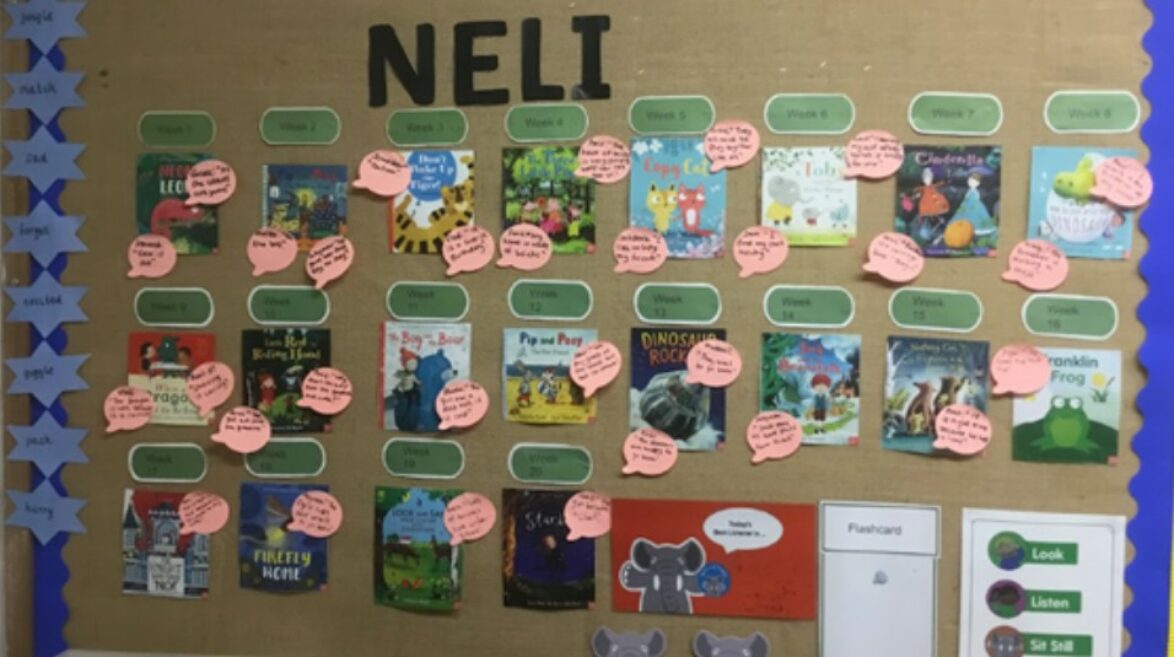The domino effect of early language intervention
Nightingale Primary School, located in the London Borough of Greenwich, has prioritised building strong language foundations since 2017. They recognised that improving SATs outcomes and strengthening pupils’ literacy and numeracy required a whole-school approach to developing vocabulary and broader oracy skills. Headteacher Omar Jennings and EYFS Lead Chloe Coady explain why the NELI Programme has become a vital part of their EYFS strategy.

A focus on foundational language skills
Our intensive focus on oral language began after we did pretty poorly on our 2016 SATs paper. When we analysed our results, we saw we had issues with the children’s ability to read quickly. Vocabulary was also a major concern. We knew we needed to ensure our pupils had the strongest possible language foundations so they could develop essential literacy and numeracy skills.
This journey has seen us explore several programmes, many of which we continue to use today. But we still felt what we had was insufficient in meeting the scale and complexity of language needs we were observing in our EYFS cohort. When we received an email from the Education Endowment Foundation in 2020 about the NELI Programme, we knew this would be the perfect complement to Early Talk Boost and Colourful Semantics, which we were also using in our Early Years.
NELI offered us something crucial, a structured, evidence-based programme designed specifically to support the development of vocabulary, narrative skills, active listening, and comprehension. We also loved that NELI’s focus is on early identification and intervention, which aligns closely with our intention to close the language gap before it widens further.
Supporting a multi-cultural school community
At the start of Reception, we assess all pupils with LanguageScreen, the oral language screener that is part of the NELI Programme, alongside the Renfrew Action Picture Test (RAPT). Using these assessments in tandem provides us with a comprehensive baseline on our children’s language ability and enables us to direct our support accordingly.
LanguageScreen provides insight into what vocabulary they know, where they have poor listening comprehension, or whether they have issues with fluency, insight we would not get from administering the RAPT alone.
Once we have completed this baseline, we use this data to inform our schedule. We run a combination of NELI whole class, group and individual sessions from September to December. As we move into the Spring and Summer term, we continue with whole class sessions but fewer small group and individual sessions as the children also begin receiving language enrichment with Colourful Semantics and Vocabulary in Practice (VIP). We also provide NELI Preschool and Early Talk Boost to everyone in our nursery setting.

We know this approach is unconventional, but we have found that for our children, this intensive focus on oral language achieved through layering different programmes builds a strong foundation for all pupils. Our school has a richly diverse intake with about 70% being English as an Additional Language (EAL) learners. Of these children, around half have limited exposure to, or do not speak English at home, making us the first port of call as a space in which they can build and be exposed to language.
The repetition and revisiting of concepts built into NELI really help our children. The constant reinforcement of new vocabulary, sentence structure and narrative skills builds confidence and bridges the gap between “understanding” and “use”. The children also have the opportunity to hear the same vocabulary in different contexts, deepening their understanding and filling the gap where they don’t have this exposure at home.
Ted, of course, is a big hit with the children. We have him displayed in the classroom at all times. One of our children recently asked what Ted was doing, and I told them he was watching them play. They went up and started having a conversation with Ted and included him in their play. Even when they are not in the NELI sessions, the children still connect with Ted.
Developing confident practitioners
Successful implementation depends not only on the resources but also on the skill and insight of the practitioner. All our EYFS and Key Stage 1 team have completed NELI training as it’s imperative they have a good understanding of the principles behind NELI. One of our Teaching Assistants has been delivering NELI since we started the programme. She has really taken ownership of our delivery. She loves working closely with the children, helping them to grow in confidence and getting the best language out of them. As she has grown more confident, we see even greater improvements in our pupils who complete NELI. The passion we see from her for NELI is just remarkable.
We also come together each year and reflect on what went well and what could have gone better, so we know we are continuing to refine and improve our approach. As our experience has grown, we have the confidence as practitioners to adapt the programme without compromising fidelity. For example, by simplifying or extending specific components or altering the pace of sessions to match pupil readiness.
A transformative journey
The result has been transformative. Pupils who began the year with some of the lowest baseline assessments have, through NELI, developed the confidence and competence to engage meaningfully with both adults and peers. More significantly, many of these pupils have now consistently achieved Early Learning Goals in line with, and in several cases, exceeding, national expectations.
We are deeply proud of the progress we have made and appreciative of how NELI has helped us to build a purposeful, inclusive, and data-informed approach to early language intervention. It has become a cornerstone of our Early Years strategy and a key driver in our commitment to equitable outcomes.
The domino effect of strong early language is not theoretical; we have seen it firsthand. From better oracy and improved self-regulation to accelerated progress in reading and writing, the gains are tangible and enduring. Our language journey is not over, and we can’t wait to see where this will take us, and more importantly, where it will take our pupils.
